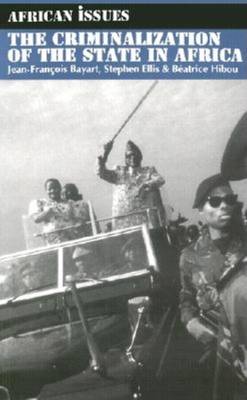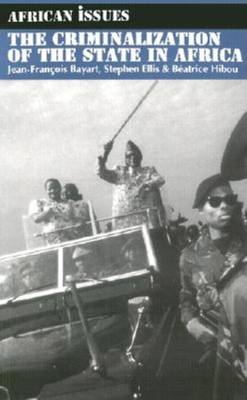
- Retrait gratuit dans votre magasin Club
- 7.000.000 titres dans notre catalogue
- Payer en toute sécurité
- Toujours un magasin près de chez vous
- Retrait gratuit dans votre magasin Club
- 7.000.0000 titres dans notre catalogue
- Payer en toute sécurité
- Toujours un magasin près de chez vous
Description
The growth of fraud and smuggling on a major scale, the plundering of natural resources, the privatisation of state institutions, the development of an economy of plunder, the growth of private armies--all of these features of public life in Africa suggest that the state itself is becoming a vehicle for organised criminal activity. The three authors propose criteria for gauging the criminalisation of African states and present a novel prognosis.
Have we moved on from "classical" corruption? There is a difference between the corruption of previous decades and the criminalisation of some African states now taking place. Major operators are now able to connect with global criminal networks.
What are the political origins of official implication in crime? The notion of "social capital" has become fashionable among commentators in recent years.
What aspects of Africa's past have contributed to current attitudes towards the use of public office for personal enrichment, or even systemic illegality? The new frontiers of crime in South Africa. South Africa has a decades-long tradition of association between crime and politics. South Africa is now the centre of important international patterns of crime, notably in the drug trade. It has both Africas largest formal economy and the continent's largest criminal economy.
What are the economic origins of official implication in crime? New forms of corruption have been unintentionally helped by liberal economic reforms.
African Issues, edited by Alex de Waal
February, 1999 192 pages 8 x 5 Index
Spécifications
Parties prenantes
- Auteur(s) :
- Editeur:
Contenu
- Nombre de pages :
- 192
- Langue:
- Anglais
- Collection :
Caractéristiques
- EAN:
- 9780253212863
- Date de parution :
- 06-04-09
- Format:
- Livre broché
- Format numérique:
- Trade paperback (VS)
- Dimensions :
- 135 mm x 216 mm
- Poids :
- 167 g

Les avis
Nous publions uniquement les avis qui respectent les conditions requises. Consultez nos conditions pour les avis.






